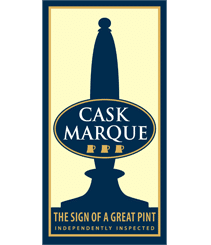In Pete Brown’s first book, ‘Man Walks into a Pub’, the author makes an observation about beers brewed specifically for women.
“Every now and again some brewer will have another punt at a beer targeted at women. They never work. It’s not that women don’t drink beer…it’s just that a beer that goes out of its way to say it’s especially for women just makes everyone suspicious. A beer that says it’s just for girls is like one of those creepy blokes without any mates of his own sex”
It is with this in mind that the latest Dea Latis meeting decided to hold a round table forum on ‘What Women Want’ from beer, the beer industry and what appeals to them. We cannot generalise too much, women have as wide a taste palate as men, and indeed amongst the 22 women who attended this Dea Latis event, there was a real mix of ‘favourites’ – from dark chocolate-like stouts and porters, to light, crisp blonde ales. This is why the group also has the opinion that a beer brewed specifically for women is not the route to take.

The sharing opportunity is also another selling point for women. How many times have you walked into a bar and seen a group of women sharing a bottle of wine? Brewers could do with observing HOW women drink in groups. Perhaps brewing beers at a higher strength in larger bottle sizes, but supplying elegant glassware to enable women to share the beer in smaller serve sizes would be an opportunity to be seized upon.
The service women receive in bars is absolutely essential. All of the group agreed that being offered a sample of beer to try was a key selling point. We don’t want to have to ask for it, we would like it to be offered automatically. In other areas of retail we automatically know we can try on clothes before buying them, test drive cars before making the decision to purchase – why is this such a difficult concept for some bars to grasp? Bearing in mind that all the group attending the Dea Latis event work in the beer industry in some capacity or other, some of the women said they were still reluctant to ask for a sample for fear of being turned down. Staff training on this issue can go a long way to reducing the ‘fear factor’ of being faced with a bank of unfamiliar beers when we walk into a bar.
For a lot of women, Beer Festivals are an entry point to cask ale. They can try numerous flavours, styles and types of beers in a ‘beery’ environment, safe in the knowledge that if one beer isn’t to their liking, it’s not the end of the world and they can try another without breaking the bank.

It is a truth universally accepted (sorry, just had to get that one in), that women do 85% of the food shopping in the off trade – yet are absolutely bewildered by the array of beers on the supermarket shelves. Opportunities are rife for the off trade to make more of the beer and food matching market. In recent years, beer has become a strong contender to wine as an accompaniment to food, yet until supermarkets (and bars) offer the same knowledge and education offered within the wine industry, it will never be acknowledged.
Finally, the Dea Latis group all conceded there was a lack of visibility of imagery surrounding women enjoying beer. Photographs are powerful tools to influence women making choices about lifestyle. More effort needs to be made to capture images of women enjoying beer, including it as part of their repertoire of drinks, and the diverse nature of beer for many social occasions.


